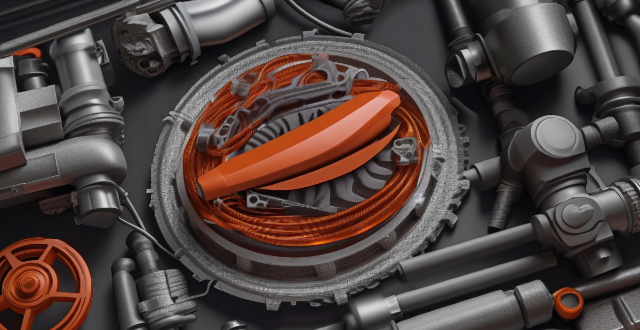Driving style significantly influences car fuel consumption. This article discusses how acceleration, deceleration, speed, idling, gear selection, tire pressure, and maintenance affect fuel usage. It also provides tips for efficient driving, such as smooth acceleration, maintaining a steady speed, using cruise control, planning routes, shifting gears appropriately, checking tire pressure regularly, and keeping the car well-maintained. By adopting these habits, drivers can reduce fuel consumption and save money on gas expenses.

Introduction
Driving style is one of the most significant factors that affect car fuel consumption. The way a driver operates their vehicle can have a significant impact on the amount of fuel used, and consequently, the cost of running the car. In this article, we will discuss how driving style affects car fuel consumption and provide some tips on how to drive more efficiently.
How Driving Style Affects Car Fuel Consumption
Acceleration and Deceleration
The way you accelerate and decelerate your car has a direct impact on fuel consumption. Rapid acceleration and sudden braking can increase fuel usage by up to 20%. When you accelerate quickly, your engine uses more fuel to generate the power needed to move the car forward. Similarly, when you brake suddenly, your engine has to work harder to slow down the car, which also increases fuel usage.
Speed
Driving at high speeds can significantly increase fuel consumption. As your speed increases, the amount of energy required to overcome wind resistance also increases. This means that your engine has to work harder to maintain the same speed, which results in higher fuel usage. For example, driving at 80 km/h instead of 100 km/h can reduce fuel consumption by up to 25%.
Idling
Idling is another factor that affects fuel consumption. When your car is idling, it is still using fuel even though it is not moving. Idling for long periods can add up to a significant amount of wasted fuel over time. For example, if you idle for 10 minutes each day, you could waste up to 5 gallons of fuel per year.
Gear Selection
The gear you select when driving can also affect fuel consumption. Driving in a lower gear than necessary can increase fuel usage because your engine has to work harder to maintain the same speed. Similarly, driving in too high a gear can cause your engine to work harder to maintain speed, which also increases fuel usage. It is essential to select the appropriate gear for the road conditions and speed you are driving.
Tire Pressure
Tire pressure is another factor that affects fuel consumption. Under-inflated tires increase rolling resistance, which means your engine has to work harder to move the car forward. This results in higher fuel usage. Checking your tire pressure regularly and keeping it at the recommended level can help reduce fuel consumption.
Maintenance
Regular maintenance of your car can also help reduce fuel consumption. Keeping your engine well-tuned and replacing air filters regularly can improve fuel efficiency. Additionally, ensuring that your car is properly aligned and that the brakes are working correctly can reduce drag and improve fuel economy.
Tips for Efficient Driving
Now that we have discussed how driving style affects car fuel consumption let's look at some tips for efficient driving:
1. Accelerate smoothly: Avoid rapid acceleration and sudden braking. Instead, gradually build up speed and apply gentle pressure on the brake pedal when stopping.
2. Maintain a steady speed: Try to maintain a consistent speed while driving, avoiding unnecessary speeding up or slowing down.
3. Use cruise control: If your car has cruise control, use it on highways to maintain a steady speed and reduce fuel usage.
4. Plan your route: Plan your route beforehand to avoid congested areas and reduce idling time.
5. Shift gears appropriately: Use the appropriate gear for the road conditions and speed you are driving. Avoid driving in too low or too high a gear.
6. Check tire pressure regularly: Make sure your tires are properly inflated to reduce rolling resistance and improve fuel efficiency.
7. Keep your car well-maintained: Regular maintenance of your car can help improve fuel efficiency and reduce fuel consumption.
In conclusion, driving style plays a significant role in car fuel consumption. By adopting efficient driving habits and maintaining your car properly, you can reduce fuel usage and save money on gas expenses.